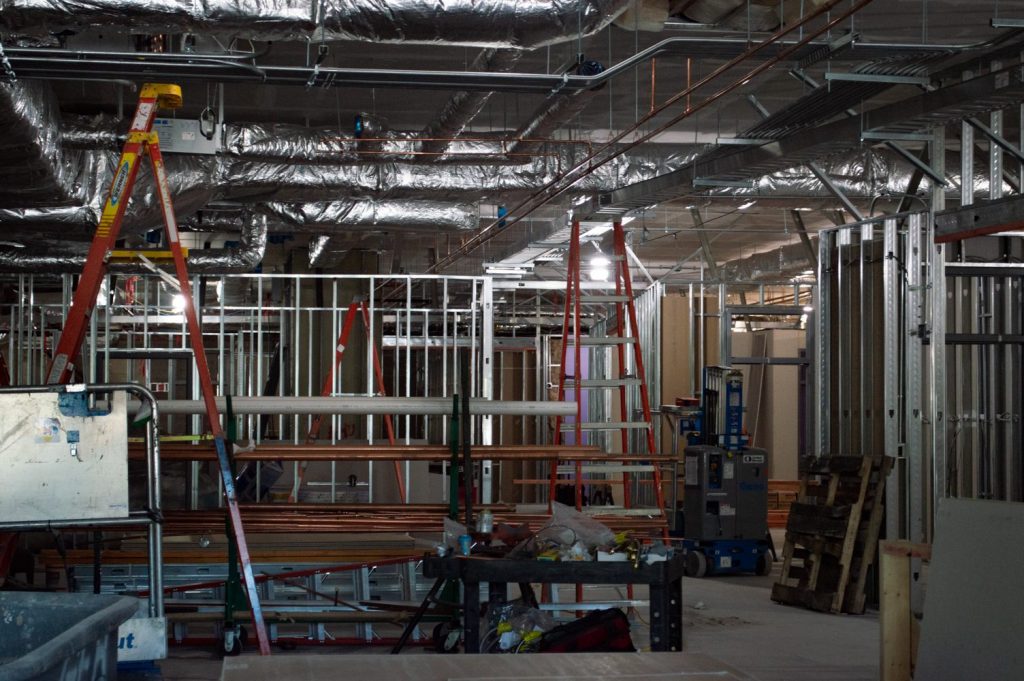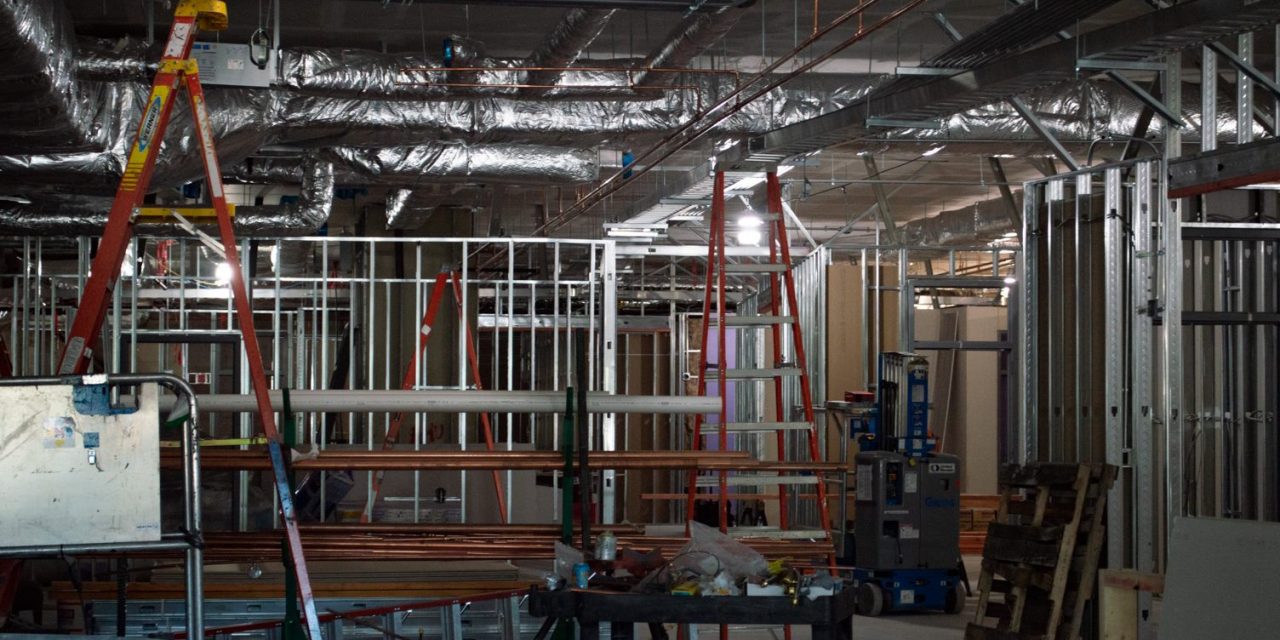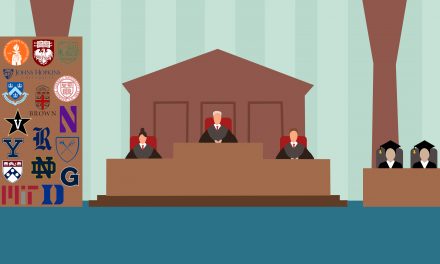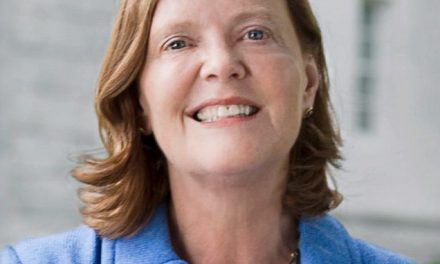In Sept. 2021, Emory University unveiled identity spaces on the first floor of the Alumni Memorial University Center (AMUC) following student-directed renovations to the Center for Women, Centro Latinx, Emory Black Student Union (EBSU) and the Office of Lesbian, Gay, Bisexual and Transgender (LGBT) Life, as well as the creation of Emory’s first-ever Asian Student Center.
However, this was only the first step in the Identity Spaces Project. The third floor of Cox Hall is undergoing a multimillion-dollar, 18,500-square-foot remodeling to “create a more just and equitable campus” and further accommodate the affinity spaces, Assistant Vice President of Campus Life Dona Yarbrough noted. This project is estimated to be completed in fall 2023.
“We are significantly upgrading our Belonging and Community Justice (BCJ) identity spaces to further Campus Life’s mission to support Emory students’ education, empowerment, wellbeing and sense of purpose and belonging,” Yarbrough wrote.

The construction on the third floor of Cox Hall is expected to be completed in fall 2023. (Tiffany Namkung/Staff Photographer)
The expansion to Cox Hall will be a “game-changer” for Emory students, as well as BCJ programs, Yarbrough added. The new spaces will be larger and more functional. Additionally, BCJ staff offices will be co-located within the identity spaces for the first time in several years, making staff members more accessible to students.
The new location will also feature shared BCJ spaces, including a large kitchen, lounge areas and a multipurpose room aimed at building community within and across identity groups.
While the AMUC spaces were recently renovated, Yarbrough noted this was temporary, and that the University wants to ensure underrepresented students are accommodated and welcomed.
“We knew that the Cox Hall project would take several years to complete,” Yarbrough wrote. “In the meantime, the AMUC spaces needed to be refreshed, so we installed new carpet, bought new furniture and painted the space. The new furniture will be moved to the new spaces in Cox Hall when the project is complete.”
Yarbrough added that the University has not decided how the AMUC’s first floor spaces will be used after the Cox Hall renovation is complete. Campus Life first needs to study space needs.
Asian Pacific Islander Desi American Activists Co-President Anhhuy Do (24C) said he is “appreciative” of the affinity spaces’ expansion into Cox Hall.
“I’m really excited to see the renovation of the affinity spaces, especially considering the rich history of Asian American student activism,” Do said. “With our current space, a lot of the Asian student organizations have been able to build community, share culture and share deep personal conversations.”
Do said his goal for the new Asian Student Center location is to allow students to reflect on the history of Asian American advocacy and make their own space within the Emory community.
“I hope that this is an opportunity for students to learn about the importance of community building as well as being able to take this opportunity to learn about the diversity within our student body,” Do said.
Regina Morales (23C), the vice president of Emory’s Latinx Student Organization, which works closely with Centro Latinx, said that although moving multiple times in the last couple of years has been frustrating, she hopes the new permanent location will benefit students.
“The spaces that we do have in the AMUC, they’re nice and they’ve been renovated, but they’re not big enough for the amount of students that we have that do identify with [affinity] groups,” Morales said. “I hope this renovation is going to be helpful for future events.”
On a broader scale, Yarbrough mentioned that this renovation will be valuable to the Emory community by helping diversity, equity and inclusion initiatives on campus.
“Belonging and Community Justice helps students find community at Emory,” Yarbrough wrote. “Feeling a sense of belonging in the University community is critical for student success.”
Even if students do not identify with one of the spaces, they are still welcomed to attend and participate in events.
“The Belonging and Community Justice spaces are open to all students, and we encourage all students to drop by and attend events in the spaces,” Yarbrough noted. “In addition to being spaces that support and celebrate students of color, women and LGBTQ students, BCJ offices deliver education and elevate awareness on issues of justice, equity, diversity and inclusion for the entire campus community.”
Morales added that students who are not members of a certain affinity group can be better allies by taking the initiative to educate themselves rather than relying on minority students.
“It can get very tiring having to keep telling people what our struggles are,” Morales said. “One of the best ways [to be an ally] is coming to events and being with people. I know it can be a little intimidating, but it’s always nice to see when people come that are eager to learn and connect with the community.”
Editor-in-Chief Brammhi Balarajan (23C) was a student ambassador for designing the Asian Student Center and had no role in writing or editing this article.
Update (10/19/22 at 9:51 p.m.): A previous version of this article stated that Anhhuy Do (24C) is the chief of staff of the Asian Student Center. In fact, Do is the co-president of Asian Pacific Islander Desi American Activists.
Eric Jones (25B) is from Short Hills, New Jersey and is studying finance, accounting and Spanish. Outside of the Wheel, Jones volunteers for SPARK Mentorship Group, works for the Atlanta Community Food Bank, and plays on the club tennis team. Jones’ hobbies include basketball, biking, tennis, volunteering and traveling.






